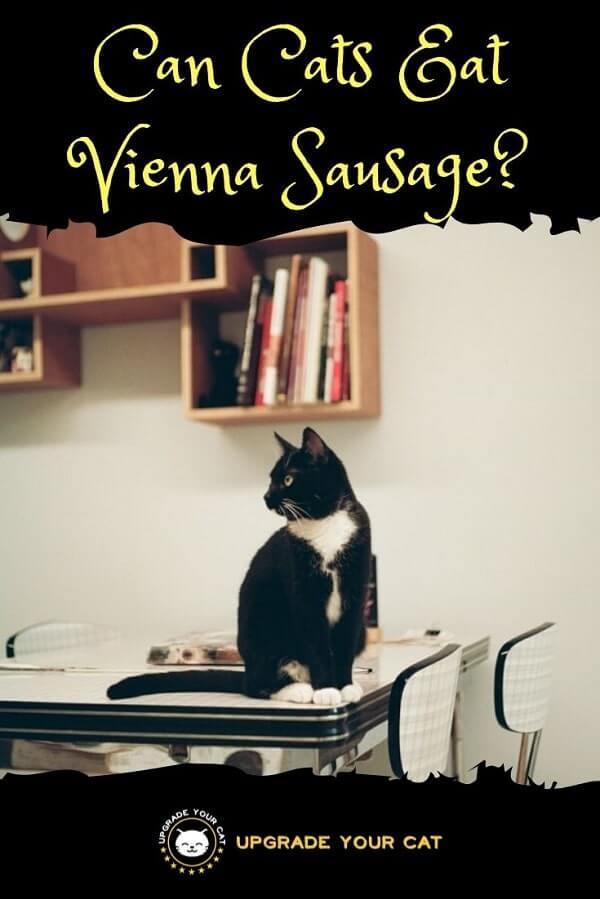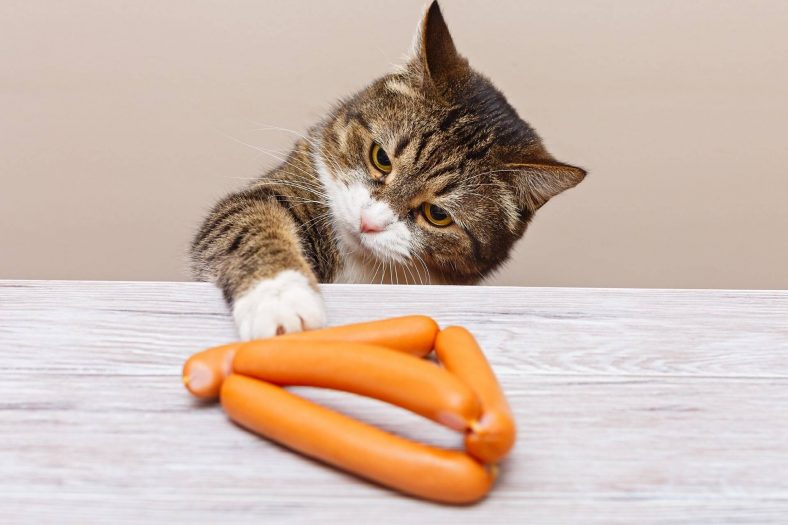In this article, we will explore the question, “Can cats eat Vienna sausage?” As cat owners, we often find ourselves wondering if certain human foods are safe for our feline companions. Vienna sausages, with their enticing aroma and convenient packaging, may seem like a tempting treat to share with our cats. However, it is crucial to understand the potential risks and benefits before introducing any new food into our pets’ diets. Let’s delve into the world of feline nutrition and uncover the truth about cats and Vienna sausages.

Understanding Feline Nutrition
Cats are obligate carnivores, which means their bodies are designed to thrive on a diet primarily composed of animal protein. Their digestive systems have evolved to efficiently process and absorb nutrients from meat-based sources. While cats can consume small amounts of carbohydrates and plant-based foods, their nutritional requirements heavily rely on animal-derived proteins, fats, and essential nutrients.
Can Cats Safely Consume Vienna Sausage?
Vienna sausages are processed meat products that typically contain a mixture of pork, beef, and poultry. They are often seasoned with various spices and preservatives. While cats may be attracted to the strong smell and taste of Vienna sausages, it is important to note that these sausages are not formulated with feline nutritional needs in mind.
Feeding Vienna sausages to cats can pose several risks. Firstly, the high sodium content in these sausages can be detrimental to a cat’s health. Cats have a low tolerance for sodium, and excessive consumption can lead to dehydration, kidney problems, and even heart disease. Additionally, the spices and preservatives used in Vienna sausages may cause digestive upset, including vomiting and diarrhea, in cats.
The Importance of a Balanced Diet for Cats
To ensure the overall health and well-being of our feline friends, it is crucial to provide them with a balanced and species-appropriate diet. Commercially available cat food, whether in wet or dry form, is specifically formulated to meet the nutritional needs of cats. These foods are carefully designed to provide the right balance of proteins, fats, carbohydrates, vitamins, and minerals that cats require for optimal health.
While occasional small bites of cooked, unseasoned meat may be safe for cats, it is essential to consult with a veterinarian before introducing any new food into their diet. Veterinarians can provide personalized advice based on a cat’s age, weight, health condition, and specific dietary requirements.
Alternatives to Vienna Sausage for Treats
If you’re looking for safe and healthy treats to spoil your feline companion, there are plenty of options available. Many pet stores offer a wide range of cat treats that are specifically formulated to meet feline nutritional needs. These treats are often made with high-quality ingredients and are free from harmful additives.
Alternatively, you can also offer your cat small pieces of cooked, unseasoned meat as an occasional treat. Chicken, turkey, and lean cuts of beef are generally safe options. However, it is crucial to remove any bones, skin, and excess fat before offering these treats to your cat.
Conclusion
In conclusion, while cats may be curious about Vienna sausages, it is best to avoid feeding them this processed meat product. The high sodium content and potential digestive upset make Vienna sausages an unsuitable choice for feline nutrition. Instead, opt for commercially available cat treats or small pieces of cooked, unseasoned meat as occasional indulgences for your furry friend. Remember, the health and well-being of our cats should always be our top priority.
FAQs
-
Can cats eat Vienna sausages in small amounts?
It is not recommended to feed cats Vienna sausages, even in small amounts. The high sodium content and potential digestive upset make them unsuitable for feline consumption. -
What are the risks of feeding Vienna sausages to cats?
Feeding Vienna sausages to cats can lead to dehydration, kidney problems, and heart disease due to their high sodium content. The spices and preservatives used in these sausages may also cause digestive upset. -
Are there any safe alternatives to Vienna sausages for cat treats?
Yes, there are plenty of safe alternatives available. Look for commercially available cat treats that are specifically formulated to meet feline nutritional needs. You can also offer small pieces of cooked, unseasoned meat like chicken, turkey, or lean cuts of beef. -
Why are cats obligate carnivores?
Cats are obligate carnivores because their bodies have evolved to require a diet primarily composed of animal protein. They have specific nutritional needs that can only be met through the consumption of animal-derived proteins, fats, and essential nutrients. -
Should I consult a veterinarian before introducing new foods to my cat’s diet?
Yes, it is always recommended to consult with a veterinarian before introducing any new food into your cat’s diet. They can provide personalized advice based on your cat’s specific needs and ensure their overall health and well-being.

